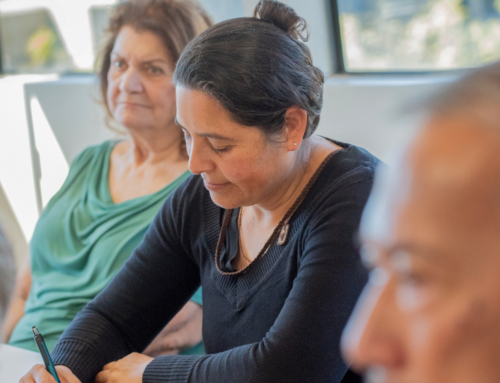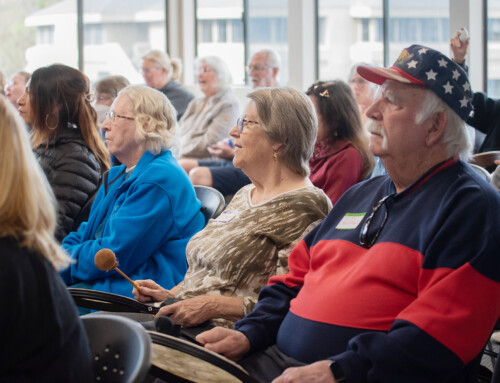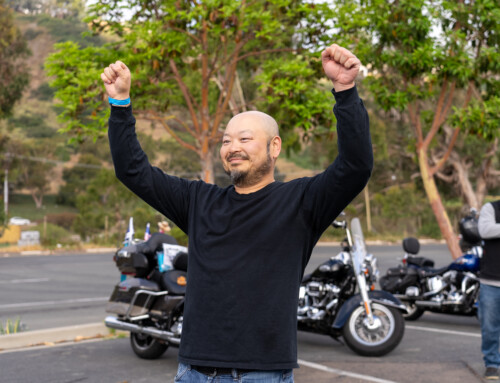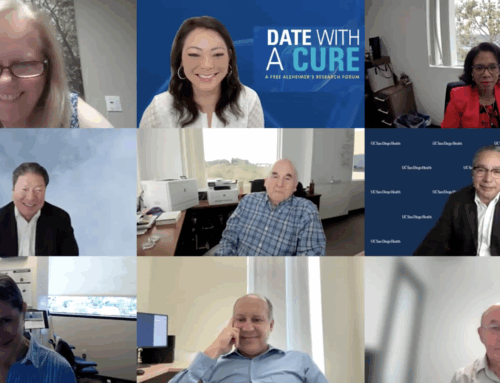Alzheimer’s and other dementias are not linear – that’s part of the unique heartbreak of the disease. There are early, middle and late stages, but each day can vary wildly from the next.
Alzheimer’s San Diego recently held a special workshop, Preparing for the Late Stage, led by Rebecca De Campos, MSW. Her goal was to provide a general idea of what to expect in this final stage, explore care options and to empower care partners to find new ways to connect with their loved ones.
“It’s easy for care partners to feel frustrated and overwhelmed as the disease progresses. But we try to encourage and guide the care partner to focus on what the person living with dementia still can do, rather than what they’ve lost,” Rebecca explained. “There can still be good days full of humor and joy, even in the end.”
TIP SHEET | Preparing for the Late Stage
Symptoms of the late stage of Alzheimer’s and other dementias include limited verbal communication, difficulty chewing and swallowing, reduced physical activity and mobility and the need for 24-hour supervision. However – Rebecca stressed that people in the late stage still have many strengths and abilities. They have an awareness of their surroundings and can respond to tone and emotion. They can also connect through non-verbal communication and sensory stimulation.
Rebecca recommended that care partners nurture their relationships through activities like storytelling, looking through photographs, personal touch, music, tastes and scents. When she asked the room what still makes the person they’re caring for happy, the overwhelming favorite answers seemed to be eating desserts and listening to music.
“If a bowl of ice cream is going to bring that sense of joy to them, then I say go with it,” she said. “Let them overindulge and enjoy!”
SIGN UP | Free classes & workshops
The workshop also focused on hospice care, its benefits and how to access its services, pinpointing for families when it may be time to utilize the hospice resource . Rebecca explained that too many families say they wished they would have utilized hospice sooner. Hospice can provide vital comfort and support, so she urged families to talk to their doctor or call and speak to a Social Worker to find out if it may be the right time to get more support.
Finally, Rebecca reminded everyone in the room to take care of themselves. Common signs of caregiver stress include anger, anxiety, depression, social withdrawal, sleeplessness and worsening medical problems. She encouraged everyone to find time for themselves when they could – whether it’s by taking a walk on the beach, going to a movie or attending a support and discussion group.
While the workshop provided new tools for the caregivers’ toolboxes, there’s no one-size-fits-all solution when it comes to caring for someone with dementia. If you would like help putting together a personalized care plan for the future, give us a call at 858.492.4400.




